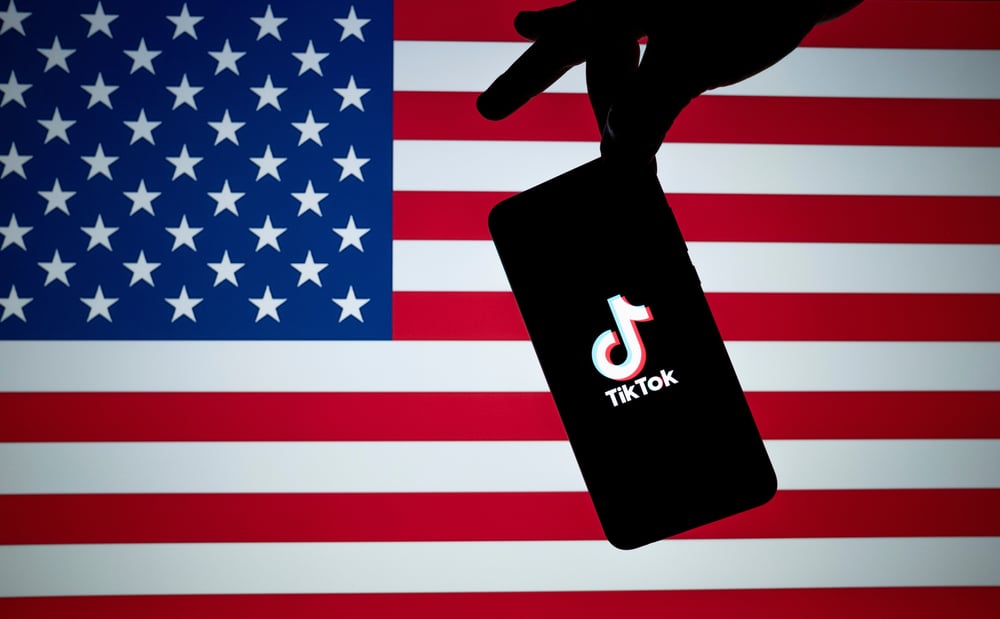TikTok and its parent company ByteDance filed an emergency motion today (December 9) asking for a temporary injunction to block a law that would effectively ban the app in the United States on January 19.

On Friday (December 6), a U.S. federal appeals court unanimously dismissed TikTok’s lawsuit challenging a law that could force it to sever ties with its China-based parent company ByteDance or face a total ban from the market.
The three-judge panel stressed that the government’s primary motivation was to protect free speech in the United States from potential foreign interference.
TikTok asked the U.S. Court of Appeals for the District of Columbia on Monday to delay the law until the U.S. Supreme Court hears its appeal of Friday’s ruling.
In Monday’s emergency motion (which you can read in full here), TikTok and ByteDance argued that “the Supreme Court, as the only court with appellate jurisdiction over this lawsuit, should have the opportunity to decide whether to review this exceptionally important case”.
The motion also argued that “an injunction is particularly appropriate because it would give the incoming administration time to determine its position — which could raise imminent harm and the need for Supreme Court review.”
TikTok and ByteDance noted in the filing that President-elect Donald Trump has pledged to prevent the app from being banned after taking office.
“To everyone who wants to save TikTok in America, please vote for Trump,” the president-elect said in a video posted on his social media platform. the truth socialearly September.
“Public interest in avoiding hasty judicial review is particularly strong because the bill is set to take effect the day before the new president’s inauguration on January 20,” according to TikTok’s filing on Monday.
The document adds: “It is highly likely that the new administration will suspend enforcement of the Act or otherwise mitigate its most serious potential consequences.”
In Friday’s ruling, the court highlighted how Chinese law requires companies to “cooperate with state-guided cybersecurity supervision and inspections.”
The judges cited what they called “compelling evidence that the Chinese government may use Chinese information technology companies as vectors for espionage and sabotage.”
Court recognizes significant impact on TikTok 170 million US users. However, it emphasized that this burden could be attributed to “China’s hybrid commercial threats to U.S. national security.”
If TikTok fails to find a buyer by January 19, 2025, the platform will effectively become unavailable in the United States. TikTok parent company ByteDance has previously insisted it has no plans to sell the platform.
In a 44-page emergency motion filed on Monday, TikTok argued that “the ban will not cause substantial harm to the government” and that “there is no imminent threat to national security.”
It continued: “This is especially evident because (1) Congress itself delayed the bill’s effective date by 270 days (it could have been 360 days); (2) the administration’s own defense of the bill ranged, at best, from claiming that China “might ” engaging in certain harmful behavior through TikTok, not that China is currently doing it or will do it soon.
“A slight delay in enforcing this bill will only create breathing space for an orderly review by the Supreme Court and for the incoming administration to evaluate the matter – before one of the country’s most important speech platforms is shut down.”
TikTok said in a statement posted on its website on Monday that its “core is 170 million U.S. users.”
TikTok claims that in 2023 alone, advertising, marketing and organic influence on TikTok contributed US$24.2 billion, and TikTok’s own business contributed US$8.5 billion to US GDP.
TikTok quotes “Estimated [that] Data shows that unless the TikTok ban is stopped, small businesses on TikTok will lose more than $1 billion in revenue, and creators will suffer nearly $300 million in revenue losses in just one month.global music business

